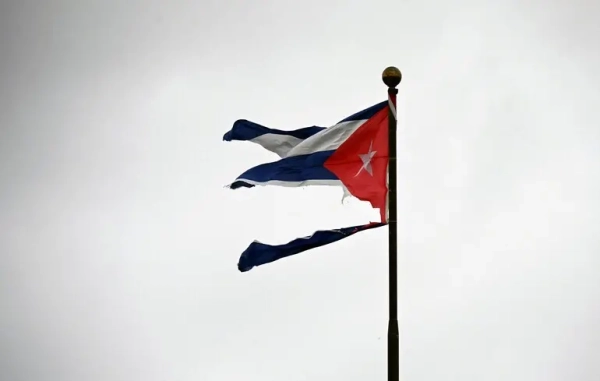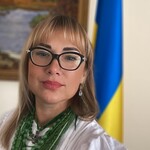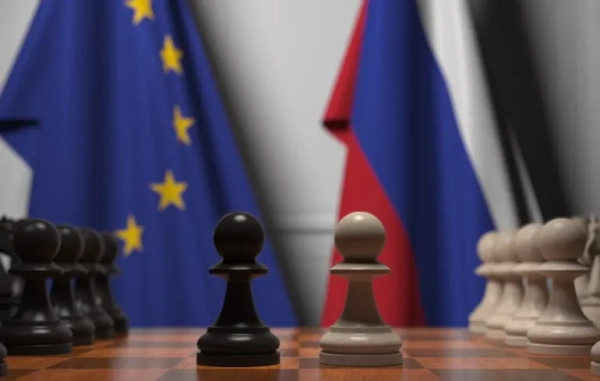
© Getty Images

Iryna Kostyuk
The Cuban issue has recently surged to the forefront of media attention for the first time in a considerable period. Initially, Reuters, referencing an internal State Department dispatch, detailed a document intended for US diplomatic outposts, asserting that, after North Korea, Cuba stands as the most significant provider of mercenaries for the Russian Armed Forces. According to US assessments, up to 5,000 Cubans are engaged in combat on Russia’s behalf in Ukraine.
Subsequently, reports emerged in the Ukrainian media, indicating that, based on Ukrainian intelligence, up to 25,000 Cubans might be participating in the conflict on Russia’s side.
Consequently, towards the close of October, Ukraine, for the first occasion, cast a vote against the “Cuban” resolution within the UN General Assembly.
Foreign Minister Andriy Sybiga elucidated that this determination was not abrupt and rested on substantial justification, recalling the Cuban president’s expressions of “success” for Putin in his hostile war against Ukraine, and underscoring that “Havana's reluctance to cease the extensive involvement of its nationals in Russia's war against Ukraine signifies complicity in aggression and merits the most stringent condemnation.”
Illustrious Past
Nevertheless, anyone acquainted with the subject will undoubtedly recall that Ukrainian-Cuban relations were not consistently thus. Indeed, the situation was quite different.

Photo provided by the author
Cuba emerged as one of the pioneering nations in Latin America to acknowledge Ukraine’s sovereignty, a mere five days following the referendum on December 1, 1991. By March of the subsequent year, we had formalized diplomatic ties, and in September 1993, the Ukrainian embassy was inaugurated in the most esteemed area, housing the majority of diplomatic missions accredited to Havana.
Regular exchanges occurred between the two countries at both the presidential and ministerial levels. The treaty and legal framework governing bilateral relations encompassed over 60 agreements, establishing a legal foundation for cultivating extensive cooperation across various echelons. Our collaboration thrived in the economic arena, encompassing the food sector, energy, and mechanical engineering. Leveraging the robust traditions of collaboration in education dating back to the Soviet era, scholarships were designated for postgraduate studies for Cubans possessing higher education.
And, undoubtedly, the program dedicated to the care and recuperation of children from Ukraine who suffered from the Chernobyl catastrophe is widely recognized. Spanning nearly 21 years, excess of 24 thousand patients underwent rehabilitation at the Cuban medical and health facility “Tarara,” with one in five grappling with severe oncological, immune, orthopedic, and systemic ailments. Cumulatively, Cuba allocated roughly 500 million dollars to this program. During that period, virtually every Cuban family was cognizant of Ukrainian children.
Furthermore, a contingent of Cuban physicians consistently served at the Druzhba Children’s Sanatorium and Health Center in Yevpatoria, extending medical rehabilitation services to patients injured in the Chernobyl incident.
War as the Point of No Return
However, the Russian military’s act of aggression in February 2014 bifurcated our relations into “before” and “after.” Regrettably, Cuba embraced the Russian stance , dissenting against the draft resolution “Territorial Integrity of Ukraine” in March 2014 and persistently voting against all Ukrainian UN resolutions until 2022.
This is, notably, paradoxical – how essentially capitalist Russia contrived to “sell” itself to the “socialist trio” of Latin America (Cuba, Venezuela, Nicaragua), capitalizing on “anti-colonial sentiments” and “lingering nostalgia” towards the former USSR, while simultaneously possessing fairly constrained capacities to vie for influence in the region against both the USA and China. Consider a solitary statistic as substantiation: according to the IMF, in 2021, even prior to the diminution of Russian resources resulting from the full-scale incursion of Ukraine, Russia’s reciprocal trade with the nations of Latin America and the Caribbean barely amounted to $10.8 billion, juxtaposed with $350.9 billion in trade with the PRC region and $796.6 billion in trade with the USA.
A glimmer of optimism surfaced in 2022 when Havana abstained thrice during votes on resolutions within the 11th Extraordinary Special Session of the UN General Assembly, and replicated this action for the fourth time in February 2023.
Our embassy in Havana exerted its utmost to seize this chance to “draw” Cuba, at a minimum, into the realm of reliably neutral states. However, grand geopolitics once more took precedence. In the early days of March 2023, the Secretary of the Security Council of the Russian Federation, Nikolai Patrushev , conducted a working visit to Cuba – to “coordinate security affairs” – and engaged in discussions with the Cuban president and the leadership of the state’s power structure. This sojourn was not accompanied by the customary synchronized “media fanfare” in the official media, utilizing a broad spectrum of epithets regarding the “traditional robust friendship” between Cuba and the Russian Federation and persistently drawing historical analogies. Merely measured and concise information was disseminated within the official Cuban media sphere (which is, in essence, the sole form of media in Cuba).
Nevertheless, since that juncture, by a peculiar happenstance, Cuba has effectively “entered the second stage” of reinforcing its pro-Russian orientation, escalating bilateral engagements with the Russian Federation both on the political front and, most prominently, on the military-security front.
Superficially, this manifested in a sweeping transformation of rhetoric within the official media landscape. Where, until March 2023, Havana attempted, at least ostensibly, to uphold a somewhat impartial demeanor, a pronounced shift in rhetoric and an almost verbatim echoing of Russian narratives could be observed subsequent to the aforementioned visit: “shelling of civilians by the Kyiv regime,” “coup d’état in Kyiv in February 2014,” “special military operation aimed at demilitarization and denazification,” “attacks by the Kyiv regime on the civilian population of the Donetsk and Luhansk republics,” and so forth.
Ultimately, all these elements logically culminated in the circumstance that, in May of the preceding year, during a visit to Moscow, Cuban President Miguel Diaz-Canel expressed to Russia his wishes for “complete success in all the modalities by which it executes a special military operation,” and in the autumn of the same year, the initial reports of Cuban mercenaries began to materialize.
It would be unjust to assert that official Havana remained silent concerning the matter of mercenaries. Back in September 2023, the Cuban Foreign Ministry issued a statement wherein it was conveyed that the Cuban side had detected and was endeavoring to neutralize and eradicate a human trafficking network “operating from Russia” to enlist Cuban citizens “who reside there, and even some who reside in Cuba, into the armed forces participating in military operations in Ukraine.” And in October of this year, the foreign ministry released a fresh declaration in which Havana underscored that it was not partaking in the “armed conflict in Ukraine” and likewise “possesses no precise details pertaining to Cuban citizens who, on their own volition, have enlisted in or are engaged with the armed forces of any faction in the conflict.”
Determining the precise quantity of these mercenaries and their places of recruitment remains challenging presently. Specifically, the testimony of a captured Cuban indicates that a substantial proportion of them concluded in the Russian army as a consequence of blatant deception perpetrated by Russian recruiters, who attracted them with advertisements seeking laborers in Russia with a “respectable wage.”
Nonetheless, it is equally distressing to realize that the aforementioned Russian propaganda did, in fact, achieve its insidious objectives. Certain Cuban youths genuinely embarked on war against Ukraine for ideological motivations, even without comprehending the essence of the conflict. This is, notably, corroborated by the deposition of another Cuban prisoner, who, according to his own account, sought funds for a transit to Moscow and “present himself at any recruitment hub.”
Furthermore, in conjunction with pro-Russian propaganda, a significant factor has also been the severe economic predicament that the Island is presently undergoing. Cuba systematically endures critical scarcities of essential consumer goods, elevated inflation, inadequate harvests, and daily power interruptions (provinces experience weeks without power).
All of this, in effect, cultivates conducive conditions for the adversary to enlist individuals driven to despair, some of whom are prepared to become accomplices in the crime of aggression for a scant few thousand dollars (typically, media outlets cite a figure of $2,000) and assurances of obtaining Russian citizenship .
The Endeavor for Cuban Sentiments
However, I wish to emphasize that, throughout this Cuban matter, it is critically important to differentiate between the official state stance and the Cuban populace. And Minister Sibiga aptly noted that our expression is not targeted against the Cuban people – we respect their entitlement to reside in prosperity.
Indeed, operating on this tenet and acknowledging that the enemy will exploit the arduous existence in Cuba to its utmost capacity to enlist as many citizens of this nation as feasible, the Ukrainian diplomatic mission concentrated maximal attention on implementing “soft diplomacy,” endeavoring to serve as a Salingerian “catcher in the rye” of sorts.
In essence, for the first occasion since the establishment of our diplomatic mission in Cuba, methodical engagement with the Ukrainian community was initiated. Themed evenings of Ukrainian music, conventional Ukrainian cuisine, Ukrainian literary and musical circles, and thematic film screenings were conducted regularly. This tactic demonstrated considerable efficacy in advancing Ukrainian narratives, considering the favorable assimilation of Cuban Ukrainians into the local society.

Photo provided by the author

Photo provided by the author
Furthermore, for the first time, connections were forged with the representative office of the Patriarchate of Constantinople in Havana, with which prayer services and memorial services are collectively conducted with the involvement of the Ukrainian community, Cuban nationals, and the diplomatic corps, as well as joint activities for Cuban orphans and children with disabilities.
Our diplomatic mission also initiated the active utilization of opportunities afforded by amicable embassies accredited in Havana for the first time to disseminate Ukrainian content. These opportunities encompass collaborative screenings of Ukrainian films for Cubans, photographic exhibitions, musical, sporting, and culinary projects, and various humanitarian endeavors.

Photo provided by the author
In conjunction with collaborative actions with partner nations, independent humanitarian initiatives are routinely carried out among Cuban citizens for the first time since the embassy was founded, notably, patronage has been assumed over the Bethlehem Home for the Elderly and Disabled.

Photo provided by the author
And this catalogue can be extended.
Undeniably, every nation possesses distinct attributes. Yet, ordinary Cubans constitute a genuinely unique people. In spite of the dire social and living conditions, they rise with a smile, savor a cup of potent cortado coffee, and proceed to work, without anticipating a lottery windfall. Daily, one can observe women en route to work donning a vibrant hibiscus blossom in their hair. It is all genuine, unreserved, and devoid of pretense.
Finally, let us recall that numerous Ukrainians possess Cuban ancestry, as Cubans imparted not solely their affection, but also, in a literal sense, their blood when their medical practitioners rescued our “Chernobyl” children from the brink.
Consequently, it is presently of paramount importance not to distance ourselves from Cuba and Cubans (as this will merely precipitate an augmented influx of mercenaries from the Island into the Russian army), but to persist in actively engaging with them, endeavoring to resonate with Cuban sentiments.
In summation, the experience of the embassy in Cuba underscores that formulating a comprehensive foreign policy strategy vis-à-vis nations that are hostile toward us represents an exceedingly pertinent subject. And the establishment of the Department of Unfriendly Countries within our Ministry of Foreign Affairs is manifestly an appropriate measure that has been overdue.
It now remains to populate the form with thorough content: conceiving a lucid foreign policy trajectory concerning unfriendly states, accounting for the particularities of each, efficacious economic diplomacy, and, undeniably, a well-considered humanitarian policy, the same “soft diplomacy,” bolstered not solely by zeal, but also by adequate funding.
Ultimately, the experience of the West’s triumphant systematic methodology during the Cold War in the battle against the Soviet bloc plainly demonstrates that a meticulously and methodically constructed strategy of “bridges” to the sentiments of ordinary individuals, circumventing official authorities, is substantially more impactful than erecting “walls” and adopting a simplistic “black and white” approach in foreign policy.






